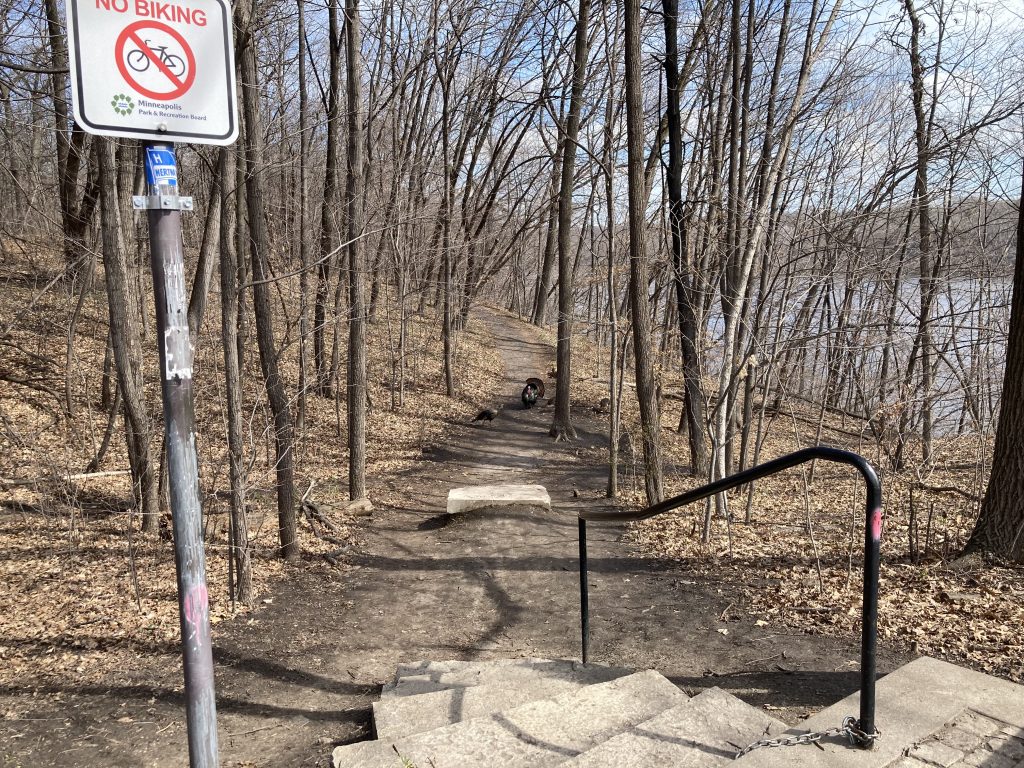9 miles
lake nokomis (cedar bridge) and back
61 degrees
9 miles! Decided to break it up into blocks of 3. Miles 1-3: easy, no stops / Miles 4-6: run 9 min, walk 1 min / Miles 7-9: heart rate zones. Well, I didn’t really follow it on the last mile; I ran the whole way. Another mile would have been water — especially without water — but by next week, I’ll be ready for it. (3 sept 2024: I’m not sure what I was trying to write here? Would have been harder?)
10 Things
- LOUD leaf blower
- lawn mower
- overheard audiobook line coming from a passing biker: she walked through the airport
- an adult yelling at a kid: it’s only 10 am, and you’re already covered in fricking dirt!
- sparkling water, 1: the river, through the trees
- rowers!
- sparkling water, 2: from the bridge, lake nokomis
- boats waiting at the dock to be checked for zebra mussels
- a pickleball tournament at the rec center — thwack thwack thwack thwack
- 2 bikers yelling to their friend — Laura! Sue! Laura and Sue turn around and bike back to them. Biker 1 explains, this is the turnoff to go over the bridge. Laura or Sue, oh, it’s been so long since I’ve biked over here
swim: 4 loops
lake nokomis open swim
76 degrees
Another great night for a swim! There’s still a blue-green algae advisory, but I didn’t encounter any, only one or two vines. Wasn’t sure how I’d feel after running 9 miles in the morning, but I was fine. Tonight’s 4 loops were on the longish side. Here’s a comparison that future Sara will appreciate:
6 aug 2024: 4 loops / 2.5 miles / 2490 strokes
2 aug 2024: 4 loops / 2 miles / 2212 strokes
28 july 2024: 4 loops / 2 miles / 2276 strokes
The green buoy closest to the big beach was a lot farther south than it has been in the past week. I almost missed it during the first loop. I had to stop and look around. When I finally saw it, it was so far out that I doubted my eyes, almost thinking it might be the sail on a boat. A moment/image: treading water that was calm and flat, everything quiet, no one around, facing the sun, seeing the green buoy to my left looking enormous and far away. A double-take, then cautiously swimming towards it. Difficult to put into words the feeling, out in the lake, when I stop to tread water — such wonderful solitude and peace, maybe it’s not solitude, but a sense of nothingness or an emptying of self, a joining with the water and sky.
10 Things
- swimming away from the sun (heading east), seeing a strange red-orange spot in my left goggle
- clouds — a feathery pattern
- a plane, parallel to the water
- a seagull, then a flock of seagulls high above me — I turned my head to watch them as I breathed
- orange reflections on the water, near the buoy
- sighting the buoy, far off in the distance, emptied of its orange, looking white
- not too many yellow safety buoys tethered to swimmers, more orange and pink
- another regular swimmer saying to me before the swim, I’m glad you’re here. I thought I was the only one!
- a repeated squeaking noise that I couldn’t quite place — my swim cap? nose plug?
- 3.5 feet visibility — barely a hand or bubbles, nothing below me, swimming in pale green nothingness
My swimming one day in August project update: So far, I have 5 hours 34 minutes 44 seconds of my 24 hour goal. Can I do it? Of course I can!
Kamala Harris has picked Mn gov Tim Walz as her running mate. He’s a wonderful choice. Joy, hope, possibility.
